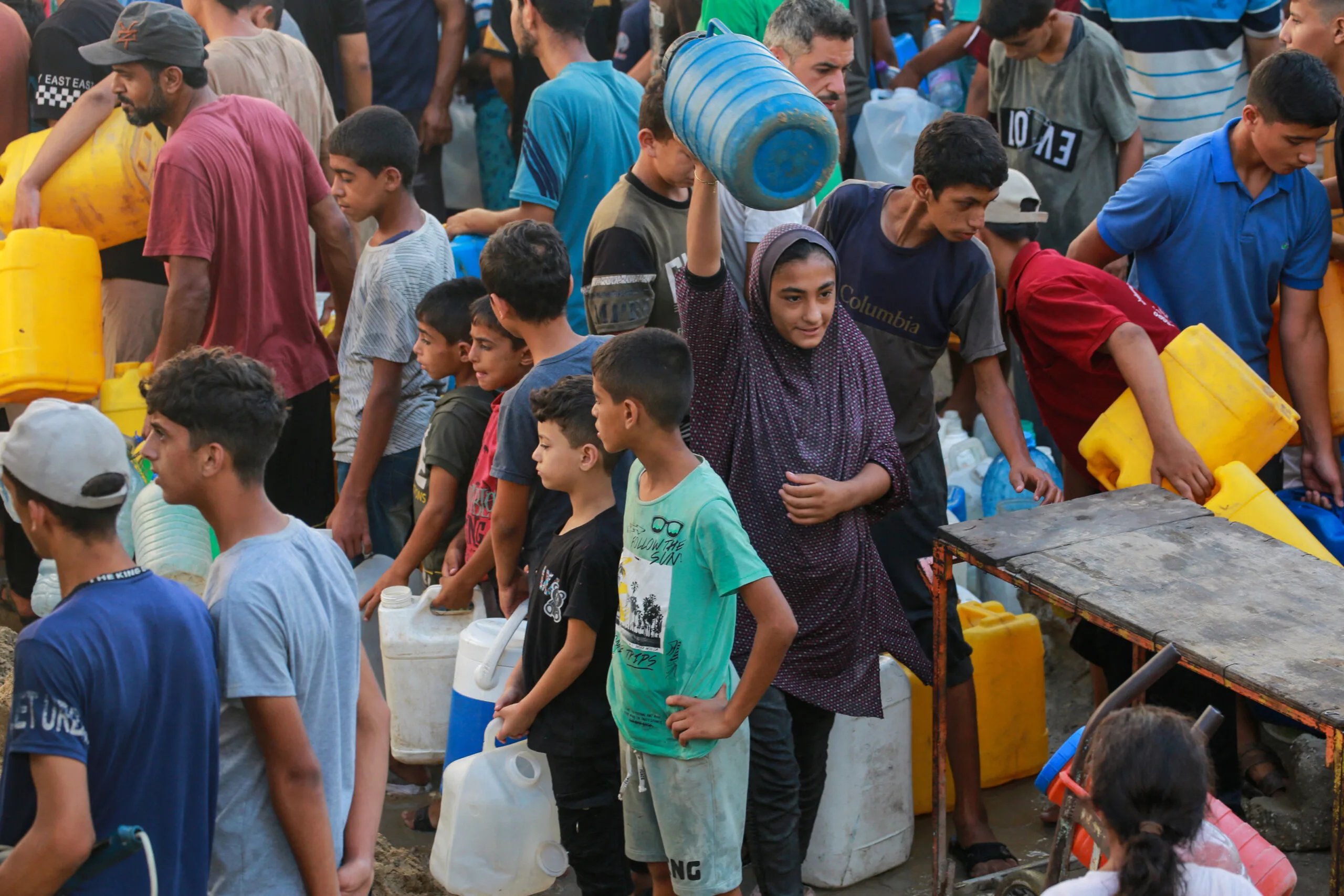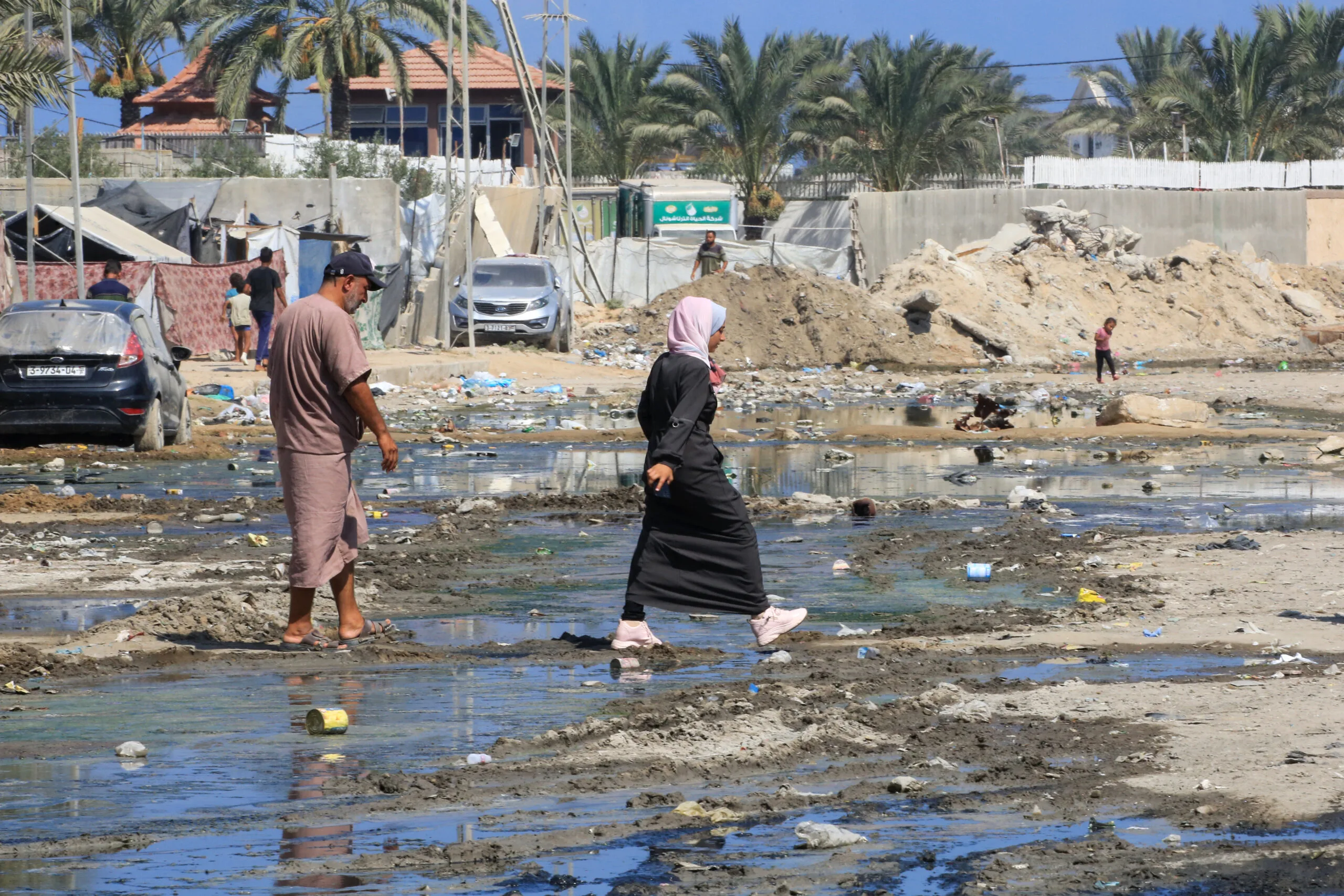Brussels – Some 40,000 Palestinians have died in the Gaza Strip since October 7, plus the thousands missing under the rubble of population centres razed to the ground by Israeli shelling. But there are also more than 90 thousand wounded and a million people who have been suffering forced displacement and terrible living conditions for months. According to the latest reports from UN agencies, several infectious diseases are increasingly rampant, first and foremost hepatitis A. On the horizon, however, is an even worse scenario: that of a polio epidemic.
In the August 2 daily update on the humanitarian situation in Gaza, the UN Office for the Coordination of Humanitarian Affairs (OCHA-OPT) warned of the presence of a “high risk of further spread of infectious diseases in Gaza, due to chronic water shortages and total inability to manage waste and sewage.” According to the testimony of the World Health Organization (WHO) Health Cluster, public health conditions in Gaza “continue to deteriorate as recurrent evacuation orders and mass displacement have further reduced the population’s access to safe water and sanitation facilities.” In addition, “the overflow of untreated sewage into the streets and the increasing accumulation of solid waste continue to fuel waterborne diseases.”
Israeli raid on Rafah water plant, Borrell: “War crime.”
It is in this context that the Israeli army, last July 27, allegedly deliberately struck and destroyed a key water production and distribution facility in Rafah, in the southern Palestinian enclave. A facility that included a 3,000 cubic meter mixing and distribution tank and three water pumping stations. International calls for clarity on the matter were also joined by the European Union, which is “gravely concerned about Israel’s continued destruction of key civilian infrastructure.”

The EU High Representative for Foreign Affairs, Josep Borrell, warned in a note that “targeting critical infrastructure constitutes a war crime” and that “violations of international humanitarian law must be thoroughly and independently investigated and accountability ensured.” The head of European diplomacy remains vigilant about the humanitarian catastrophe in Gaza as international attention has shifted to the risk of regional escalation of the conflict, with Iran threatening imminent retaliation to Israel’s attacks in Beirut and Tehran.
40 thousand cases of hepatitis A and the ghost of the polio epidemic
The people of Gaza “continue to be subjected to starvation and repeated displacement in overcrowded tented camps for the tenth consecutive month, with no end in sight and nowhere to go,” recalled Borrell, who, on behalf of the 27 member countries, said he was “deeply concerned about the collapse of sanitation, solid waste management and health systems, which has caused the spread of diseases, including polio, skin and respiratory infections, particularly among children.”

Sewage on the road due to collapsing water infrastructure in Deir el-Balah, in the centre of the Gaza Strip (Photo by Eyad BABA / AFP)
Since October 2023, the UN Relief and Works Agency for Palestine Refugees (UNRWA) has recorded 40,000 cases of hepatitis A. In the same time frame before the war, there were 85. The infection, which is generally contracted by eating or drinking food or water contaminated with infected faeces, continues to rage, with nearly a thousand new cases of acute jaundice syndrome reported every week in UNRWA health centres and shelters. “A frightening increase,” underlined in a post on X by the UN agency’s Commissioner-General, Philippe Lazzarini.
However, at a press briefing in Geneva, World Health Organization (WHO) spokesman Christian Lindmeier revealed a possibly even more serious threat: the risk of a polio epidemic. Lindmeier stressed that although efforts are underway to acquire vaccines, “it is not enough to get them across the border.” As has been the case with food and medical supplies for months, the shipments of vaccines are at risk of getting stuck in convoys, across the border, at Rafah’s gates or other checkpoints inside. A ceasefire is needed to distribute them widely.
“We reiterate the urgency of full, rapid, safe and unimpeded access to humanitarian aid to the extent necessary for the Palestinians,” Josep Borrell said again, urging “the Israeli government to desist from actions that worsen the living conditions of the civilian population in Gaza and to comply with its obligations under international law.” For the umpteenth time, the EU diplomacy chief calls for “an immediate ceasefire”. But on the diplomatic front, after Tel Aviv killed Hamas political chief Ismail Haniyeh in Tehran, the already very fragile negotiations broke down. According to the Times of Israel, negotiations between Israel and Hamas will not resume until Iran has launched its promised retaliation against the Jewish state and until the Palestinian armed group has chosen a replacement for Haniyeh.
English version by the Translation Service of Withub









